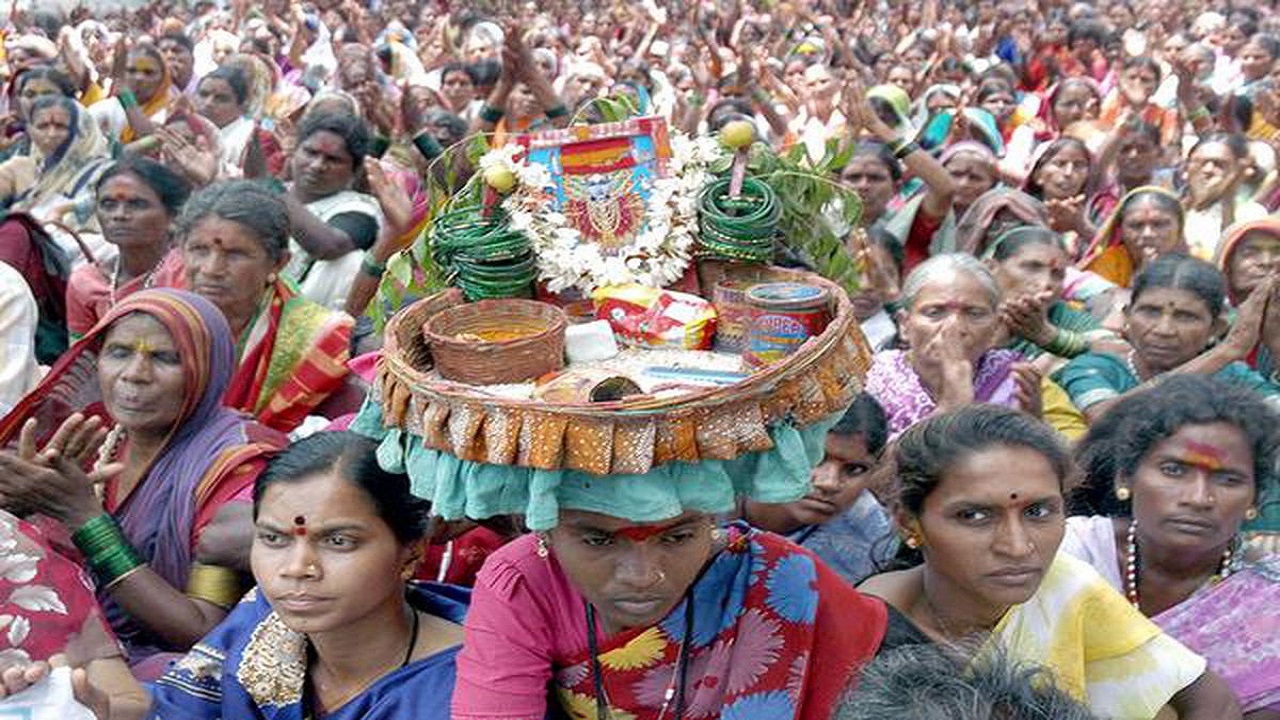Revisiting the Devadasi System: Survey, Rehabilitation, and Social Justice
Context
The Karnataka State Human Rights Commission (SHRC) has recently directed the state government to complete a fresh survey on the Devadasi system and submit recommendations by October. Though the practice has been legally banned, its persistence in some regions and flaws in earlier surveys have highlighted the need for updated, accurate data to enable proper rehabilitation and support mechanisms.
Introduction
The Devadasi system involves the ritualistic dedication of young girls, often before puberty, to a deity, especially in temples across North Karnataka. Despite being prohibited under the Karnataka Devadasis (Prohibition of Dedication) Act, 1982, the practice continues in certain areas under social and cultural pressures. The absence of reliable data and continued social stigma have hampered effective policy interventions and rehabilitation efforts.
Legal Status and Previous Surveys
-
The Devadasi system has been banned since 1982 under the Karnataka Devadasis (Prohibition of Dedication) Act.
-
22,873 Devadasis were identified in the 1993–1994 survey.
-
46,660 Devadasis were identified in the 2007–2008 survey.
-
Both earlier surveys set the age eligibility at 45 years and above, although recent circulars have not clarified age-related criteria.
-
Activists have raised concerns about the inclusion of ineligible persons in past surveys and the exclusion of genuine Devadasis, especially those initiated after the legal ban.
New Survey Initiative (2024–25)
-
The new survey was announced in the 2024–2025 State Budget.
-
It will be conducted by taluk-level child development officers.
-
The survey aims to collect house-to-house data to identify all current and former Devadasis.
-
Social stigma has prevented many from identifying themselves as Devadasis.
-
Fear of legal consequences, despite the goal of rehabilitation, has also limited participation.
-
Migrant women from North Karnataka, unaware of the survey, are at risk of being excluded.
-
Activists argue that only a transparent and inclusive approach can ensure accurate results.
Continuation of Practice Despite Ban
-
The Devadasi practice still persists during annual temple fairs in many parts of North Karnataka.
-
Despite legal prohibition, cultural sanction and economic vulnerability continue to sustain the practice.
-
The absence of stringent enforcement mechanisms contributes to its continuation.
-
The lack of awareness campaigns and supportive environments discourages self-identification.
Need for Comprehensive and Accurate Data
-
A fresh survey is essential to:
-
Identify all affected women, including those initiated after 1982
-
Ensure equitable distribution of rehabilitation benefits
-
Prevent misuse of welfare schemes by ineligible individuals
-
Facilitate targeted policy responses based on real-time, verified data
-
Devadasi Rehabilitation Program in Karnataka
-
The program is implemented by the Social Welfare Department of Karnataka.
-
It aims to provide financial support and promote social reintegration of former Devadasis.
Key Features:
-
A monthly pension of ₹30,000 is directly transferred to the bank accounts of eligible ex-Devadasis.
-
Marriage incentives are provided to children of Devadasis, particularly from Scheduled Castes, if they apply within 18 months of marriage.
-
Support for income generation includes financial assistance and skill development initiatives.
-
All beneficiaries undergo spot verification before final approval.
Conclusion
Despite decades of prohibition, the Devadasi system continues to exist in hidden forms, driven by socio-economic vulnerabilities and cultural norms. A transparent, inclusive, and sensitive survey is crucial for enabling accurate identification and designing effective rehabilitation and empowerment programs. Ensuring awareness, preventing exclusion, and safeguarding rights must be central to any policy aimed at eradicating this centuries-old practice and supporting those affected by it.




Comments (0)